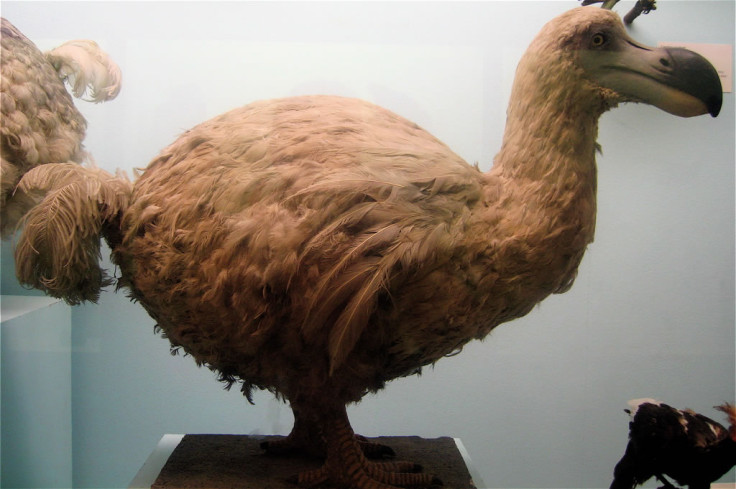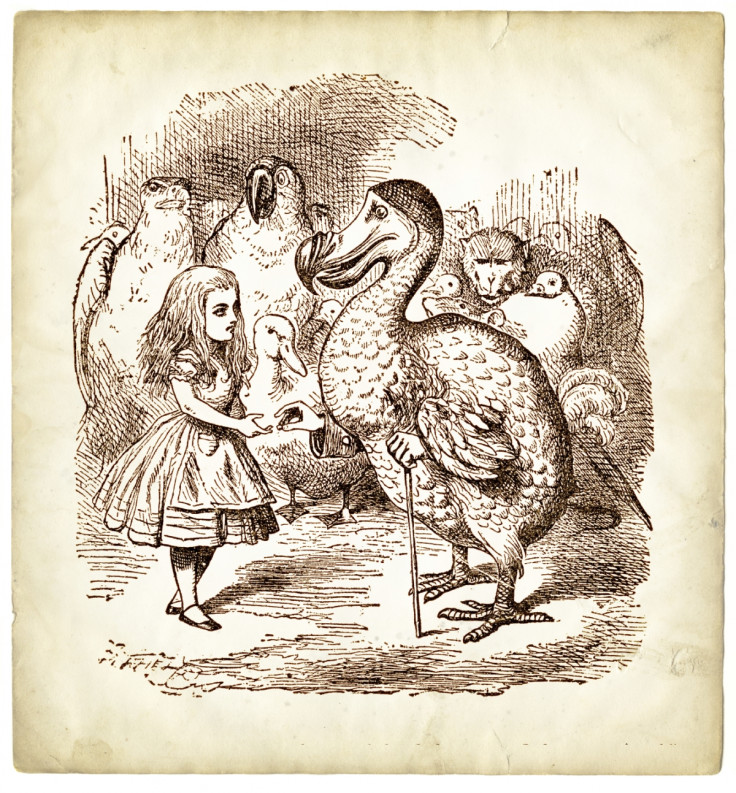Dodos were not so dumb after all: Study shows clichés about extinct bird are 'unfounded'

Dodos have appeared in children's classics over the years such as Alice in Wonderland and the movie Ice Age, and are often portrayed as rather clumsy of nature, often confined to being played purely for comic effect. While the animal actually became extinct in 1662, it has been associated with a lack of intelligence and a variety of odd behavioural patterns ever since.
However, a new study published in the Zoological Journal of the Linnean Society, shows that these judgements are now probably unfounded.
Very little is known about the biology of these birds, which were first discovered on the island of Mauritius in the Indian Ocean in the 16th century. Eugenia Gold, lead author of the paper, who is a researcher at the American Museum of Natural History's Richard Gilder Graduate School, says because dodos didn't fear human presence and were unable to fly, they were quickly turned into prey by the first men who came on the island, and subsequently killed for their meat.
"Because of that behaviour and invasive species that were introduced, they disappeared in less than 100 years after humans arrived. Today, they are almost exclusively known for becoming extinct, and I think that's why we've given them this reputation of being dumb," she explains.
A bird's eye view on a dodo's brain

With her team she compared a well-conserved skull of a dodo belonging to the British National History Museum, with the skulls of different varieties of pigeons. The scientists then imaged it with high-resolution computed tomography (CT) scanning, and built virtual brain endocasts out of these scans to look at the differences between the species. They were also able to compare the endocasts representing the brain of the dodo's closest relative, the extinct Rodrigues solitaire.
This process was useful to determine the size of the bird's brain and of its different structures. Contrary to popular belief, the dodo's brain size, compared to his body size, was normal. "It's not impressively large or impressively small, it's exactly the size you would predict it to be for its body size," Gold says. "So if you take brain size as a proxy for intelligence, dodos probably had a similar intelligence level to pigeons."
Another surprising finding was the fact that dodos had large and differentiated olfactory bulbs, the part of the brain used to smell. Compared to other birds, who rely more on sight to get their food, dodos used smell to uncover fruits and seeds on the ground. The scientists hope their discoveries will pave the way to a better understanding of dodos, and that it will maybe change people's opinion regarding the species.
© Copyright IBTimes 2024. All rights reserved.







